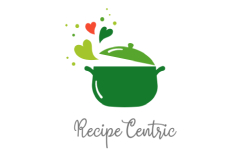Have you ever wondered about the halal status of those colorful, candy-coated chocolates known as Smarties? You’re not alone. Determining whether Smarties are halal or haram isn’t straightforward. This requires a closer look at ingredients, production processes, and regional variations. If you’re considering reaching for your next pack of Smarties, here’s what you need to know to align your choice with Islamic dietary laws.
Understanding Halal Dietary Guidelines
To assess whether Smarties are halal, it’s essential to understand halal dietary guidelines:
- Prohibited Items: Pork, its by-products, alcohol, and intoxicants are forbidden.
- Meat Requirements: Must be slaughtered according to Islamic principles (Zabiha).
- Food Additives: Ingredients like gelatin or lecithin need to be halal-certified.
- Cross-Contamination: Food must not come into contact with non-halal items during production or packaging.
These principles guide Muslims in evaluating processed foods like Smarties.
Ingredients in Smarties: A Closer Look
Smarties typically include:
- Milk chocolate
- Sugar
- Wheat flour
- Modified corn starch
- Carnauba wax
- Whey powder
- Soya lecithin
Most of these are plant-based or dairy-derived. However, whey powder and lecithin need verification for halal compliance. Although Smarties are labeled as vegetarian-friendly and free from pork, alcohol, and gelatin, the brand advises that they may contain traces of gluten, nuts, and soy. According to the official Smarties website, while the candy aligns with a vegetarian diet, it is deemed Haram.
Regional Variations in Smarties Production
Smarties differ by region, both in formulation and production:
- Nestlé Smarties: Popular in Europe, Canada, Australia, and the Middle East, these are chocolate-filled candies.
- US Smarties: Produced by the Smarties Candy Company, these are compressed tablet candies made of dextrose, vastly different from Nestlé’s version.
These regional differences impact Smarties’ halal status. Check the label to confirm the product you’re buying aligns with halal guidelines in your area.
Halal Certification of Smarties
Halal certification for Smarties varies:
- In Muslim-majority countries like Saudi Arabia, and Pakistan, Smarties are often halal-certified.
- In non-Muslim-majority regions, certification is less common.
Nestlé confirms some of its products are halal-certified in specific countries, such as Australia. However, their website indicates that not all Smarties carry halal certification. Always verify with packaging or consult the manufacturer for the most accurate information.
Potential Cross-Contamination Concerns
Even if Smarties contain halal ingredients, cross-contamination risks may arise during production:
- Shared facilities or equipment may handle non-halal products, potentially compromising the halal status of Smarties.
- Look for certifications ensuring strict halal production standards to reduce these risks.
When in doubt, opt for products with halal certification or contact manufacturers for detailed production information.
Alternatives to Smarties for Muslim Consumers
If you’re looking for halal-friendly alternatives, consider these options:
- Gelatin-Free Candies
- Halal Chocolate
- Halal Gummies
- Fruit Candies
These alternatives let you enjoy sweets without compromising dietary guidelines.
Making an Informed Decision on Smarties Consumption
Here’s how to decide whether Smarties are halal for you:
- Check the Ingredients: Ensure there are no haram components or questionable additives.
- Verify Certification: Look for a halal logo or certification mark on the packaging.
- Research Production: Confirm that manufacturing processes avoid cross-contamination with non-halal items.
- Consult Authorities: Speak with a trusted religious scholar for guidance.
If you’re uncertain, it’s wise to choose halal-certified alternatives for peace of mind.
Conclusion
Smarties occupy a gray area in halal dietary laws, with their status varying by region and product. Always check for halal certification and scrutinize ingredients carefully. When in doubt, err on the side of caution and opt for halal-certified alternatives. It’s better to play it safe when following dietary guidelines, ensuring your choices align with your faith.







